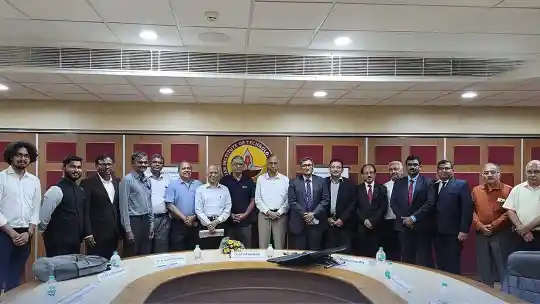India has taken a bold step toward next-gen transportation with a new partnership between TuTr Hyperloop, an IIT-Madras incubated deep-tech startup, and BEML Limited, a public sector enterprise under the Ministry of Defence.
The duo signed a Memorandum of Understanding (MoU) to jointly develop a full-scale Hyperloop system for passenger and cargo transport. BEML will act as the principal manufacturing partner, enabling indigenous production of high-speed pods that travel through near-vacuum tubes using magnetic levitation (maglev) and linear induction motor (LIM) systems.

“This partnership is a step forward for India’s efforts in high-speed transportation,” said Shantanu Roy, CMD of BEML. “It aligns with the goals of Viksit Bharat 2047 and Atmanirbhar Bharat by supporting transport systems built with Indian engineering and manufacturing.”
TuTr has already demonstrated a 1.2-ton subscale prototype, Garuda Vahaan, on a 410-meter test track, in collaboration with Indian Railways, L&T Construction, and ArcelorMittal.
What is a Hyperloop?
Originally proposed by Elon Musk in 2013, Hyperloop is a high-speed transport concept where pods travel in low-pressure tubes, potentially reaching speeds over 1,000 km/h. It promises drastically reduced travel times and energy-efficient movement of people and goods.
Still Experimental
While the vision is revolutionary, Hyperloop remains in the R&D stage globally, with challenges around infrastructure, safety, regulatory frameworks, and commercial viability. India’s collaboration with BEML is one of the earliest steps toward building a commercial-scale indigenous Hyperloop system.
With this alliance, India joins a small group of nations actively working to bring the futuristic Hyperloop concept closer to reality.
